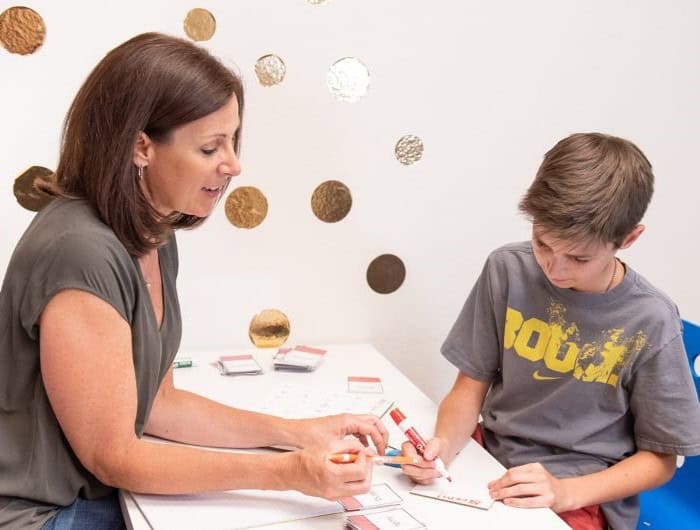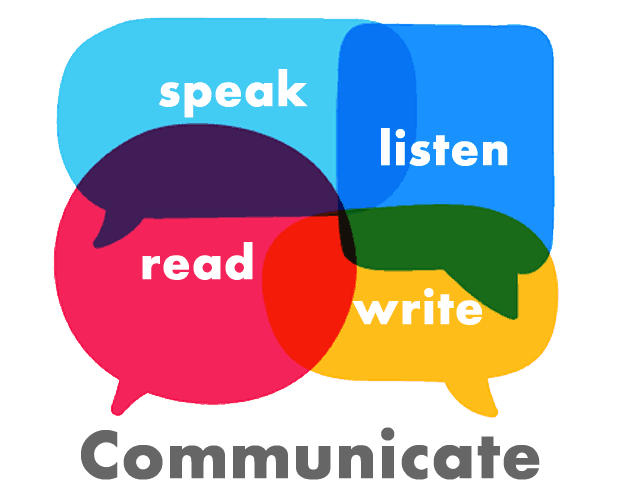Speech-Language Therapy Services

Speech-Language Therapy Services
Comprehensive Evaluations
A comprehensive evaluation will determine the precise area of need and provide a diagnosis, leading to effective therapy. Includes a written report discussing any formal assessments given, interpretation, and recommendations.
Speech-Language Therapy
Once an accurate diagnosis has been made, the appropriate type of therapy to address the problem area will be implemented. I offer thirty-minute and one-hour therapy sessions, depending on the need of the child. Many children come one time weekly. Others come 2, 3, and even 4 times weekly.
I treat both speech disorders and language disorders (including reading disorders such as dyslexia). What’s the difference?
I offer diagnosis and therapy for many speech and language disorders, including:
- Articulation disorder
- Phonological disorder
- Childhood Apraxia of Speech
- Expressive Language Disorder
- Receptive Language Disorder
- Developmental Language Disorder
- Stuttering
- Tongue thrust
- Dyslexia
- Reading delay/disorder
Let’s Get Started
Call 818-427-3600, Email Cheryl, or Request a Phone Consultation
Then what happens? Visit the New Clients page for details.
What is the difference between speech and language?
Speech is how we say words – it’s the acoustic sound of language. Speech requires movement of the articulators (lips, tongue, jaw) to create a sound. These sounds, when put together correctly, create language.
Language is the words we use to share thoughts and ideas. Expressive language is created when we combine speech sounds to convey a message. In order for that message to be understood, the speaker must choose the correct words, then use the words in the right way so that the listener understand the message. Receptive language is the ability of an individual to understand the incoming message.

Speech Disorders:
Childhood Apraxia of Speech
Childhood Apraxia of Speech (CAS) is a rare neurological speech-sound disorder in which the child has particular difficulties with motor planning and programming for speech. Children with CAS need targeted, intensive therapy delivered by an SLP who is knowledgeable about this disorder. To be effective, it is crucial that therapy incorporates the principles of motor learning. I have a special passion for working with children who have CAS, because my own son had this disorder.
Phonological Delay/Disorder Disorders
A phonological disorder means the child is producing a pattern of sound errors. For example, a phonological process called fronting occurs when sounds made in the back of the mouth (/k/ or /g/) are replaced with sounds made in the front of the mouth (/t/ and /d/). A child who uses the phonological process of fronting would say “tat” for “cat” and “doat” for “goat.” Many phonological processes are seen in typical development and will disappear as the child matures. But when phonological processes persist, or when a child uses atypical processes, speech therapy is often warranted.
Childhood Apraxia of Speech and Phonological Disorders both have a high incidence of co-occurrence with literacy delay or disorder. I am very mindful of monitoring young children for an early signs of possible literacy delays so that the problem can be tackled early and effectively.
Articulation Delay/Disorder
An articulation delay/disorder means the child has trouble physically making a sound, resulting in errors on individual speech sounds. For example, a child who places her tongue between her front teeth when making the /s/ sound, causing the /s/ to sound like /th/, has an articulation disorder. An SLP can teach the child how to correctly make the sound.
Stuttering
Stuttering is a communication disorder in which the flow of speech is broken by repetitions (li-li-like this), prolongations (lllllike this), or abnormal stoppages (no sound) of sounds and syllables. There may also be unusual facial and body movements associated with the effort to speak. Some types of stuttering a typical during the preschool years, an SLP can help determine if a child’s stuttering is developmental, or “real” stuttering.
Language Disorders:
Expressive and Receptive Language Delay/Disorder
When a child has a hard time clearly expressing meaning with their speech they may have an expressive language disorder. For example, they may have trouble learning and correctly using new vocabulary, putting words together correctly to express a thought, problems with grammatical forms such as past tense, or confusion with pronouns. On the other hand, when a child has a difficult time understanding what is being said to them, or following directions, they may have a receptive language disorder.
Reading & Writing (including dyslexia)
As children get older, reading and writing are crucial for communication. Research consistently shows that there is a very strong connection between oral language and written language. This makes SLPs (who have special training in reading) uniquely equipped to help children learn to read. Approaches such as Orton-Gillingham, Wilson, and Spell-Links to Reading and Writing, use multi-sensory, explicit strategies that are proven to be effective with struggling readers.

